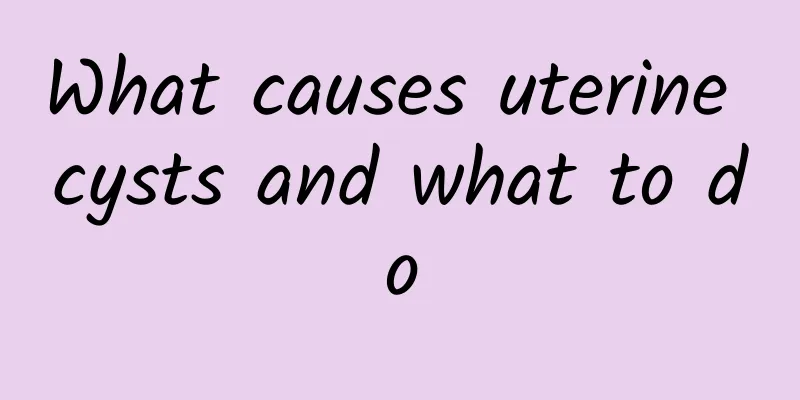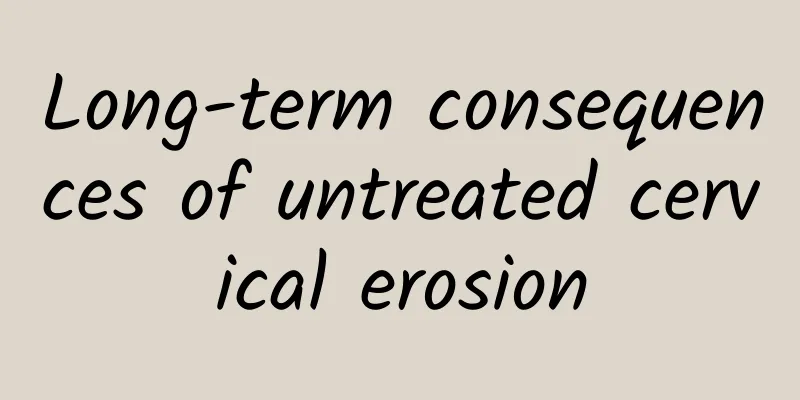What causes uterine cysts and what to do

|
The formation of uterine cysts is usually related to genetic factors, external environmental influences, physiological hormone dysfunction and other pathological reasons. According to the specific cause, a variety of methods can be selected, such as drug treatment, surgical intervention or lifestyle adjustment. 1) Genetic factors Some women may be more susceptible to uterine cysts due to a family history of genetic diseases. For example, if family members have a history of polycystic ovary syndrome or hormone disorder-related diseases, the risk of disease may also increase. In this case, regular gynecological examinations are essential. When the family history is significant, it is recommended to have an annual ultrasound examination starting at the age of 20 to detect possible lesions early. 2) Environmental factors Long-term exposure to certain harmful substances or stress may increase the risk of uterine cysts. For example, bad habits such as smoking, excessive drinking, and a high-sugar and high-fat diet can have adverse effects on hormone levels and increase the likelihood of cysts. Improving living environment and habits are important preventive measures, such as quitting smoking, controlling weight, maintaining a light diet, and staying away from environmental pollution sources, which can help reduce the risk of disease. 3) Physiological hormone problems Abnormal hormone metabolism is one of the common causes of uterine cysts. When estrogen levels are too high for a long time and progesterone secretion is insufficient, endometrial tissue may proliferate abnormally and form cysts. In this case, oral contraceptives can be used to regulate hormone levels, and the doctor can monitor hormone secretion. Commonly used drugs include Diane-35, short-acting contraceptives, etc., but they must be taken in accordance with the doctor's advice. 4) Pathological diseases Some pathological factors may also induce the formation of cysts, such as chronic inflammation (such as pelvic inflammatory disease), tumor lesions (such as cystic degeneration of uterine fibroids), etc. In such cases, surgical treatment is more common. Both laparoscopic surgery and laparotomy are suitable for larger uterine cysts, while ultrasound-guided puncture and aspiration can be selected for small cysts to relatively reduce invasive damage. 5) Traumatic or surgical sequelae After childbirth, abortion or other gynecological surgery, incomplete repair of female reproductive system tissues may lead to cyst formation. Postoperative care and follow-up visits are particularly important. Avoid strenuous exercise too early, stay away from high-risk infection sources, keep the vulva clean during recovery, and take medication on time to prevent infection. Uterine cysts are often caused by a combination of factors. Women with high-risk factors are advised to have regular checkups and consult a doctor if a cyst is found. For those with significant symptoms or pain, see a doctor as soon as possible to identify the cause and take targeted treatment to prevent hidden dangers from developing into more serious health problems. Through standardized treatment and health management, most women can properly cope with the challenges of uterine cysts. |
<<: Why do I need a hysterectomy for adenomyosis?
>>: What is the cause of endometrial polyps? Unmarried and not having sex
Recommend
Three common methods of treating vaginitis
The treatment of vaginitis is a topic of concern ...
What are the causes of threatened miscarriage?
Miscarriage is something that many people have ex...
Eat pears to lose weight! Research: One pill a day prevents obesity
Who says you have to starve yourself to lose weig...
Advantages of O'Rourke's minimally invasive LEEP procedure in the treatment of cervicitis
The American O'Rourke minimally invasive LEEP...
Is it good for women with chronic cervicitis to see a Chinese doctor? Common knowledge about Chinese medicine for treating chronic cervicitis
It is better to see a Chinese medicine doctor for...
Experts reveal how to prevent dysmenorrhea in winter?
Dysmenorrhea brings great pain to patients' l...
What is the chance of sudden cardiac death during exercise?
Exercise is good for your health, but it is not w...
What is the reason for the sticky brown discharge from the lower body?
The discharge of brown and sticky discharge from ...
Symptoms of ectopic pregnancy: early back pain?
Is the early symptoms of ectopic pregnancy low ba...
Princess Kate's postpartum anorexia nutritionist: Too thin is dangerous
According to media reports, Britain's Princes...
Japanese slimming hot! Is the 8:16 diet method for weight loss effective?
Taiwanese people love Japan, and even losing weig...
Causes of ectopic pregnancy
Ectopic pregnancy Ovarian pregnancy is a complex ...
How much does it cost to test for bacterial vaginosis during pregnancy?
Bacterial vaginosis is the most common gynecologi...
What is the best medicine for women with chronic cervicitis? Precautions for medication for women with chronic cervicitis
Chronic cervicitis is a common cervical gynecolog...
Love text? Golden Glory? Jade text? I love eating mangoes but I’m afraid of getting fat. Which one has lower calories?
The mango season is here, and different varieties...









